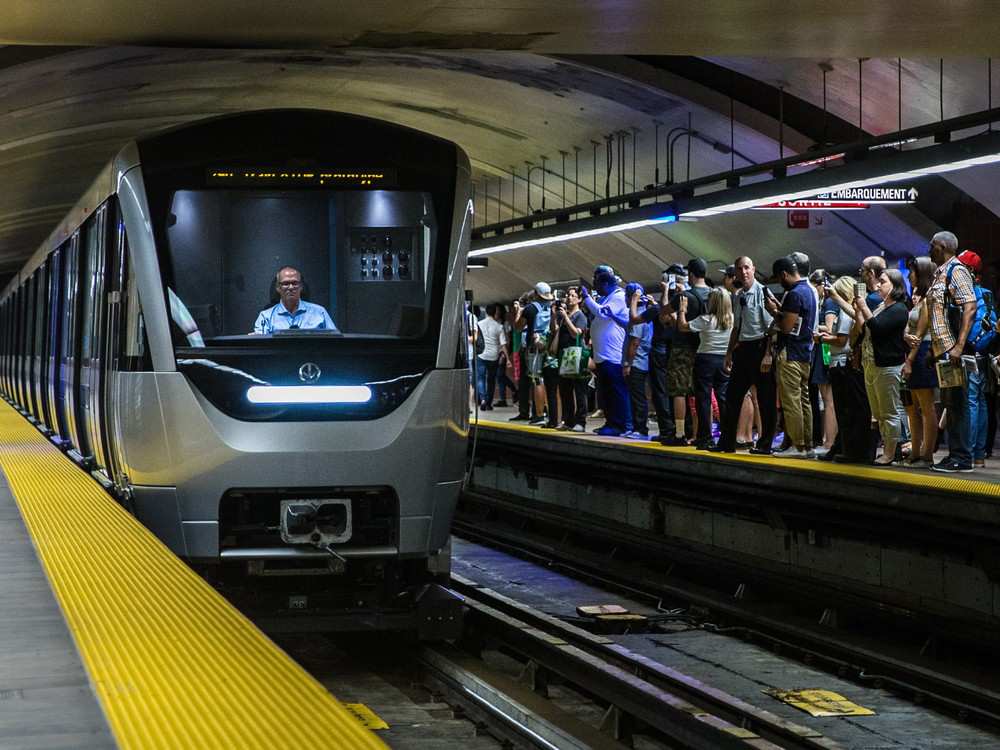A Quebec think tank recently proposed the idea that Montreal should make public transportation free. The primary goals of the proposal, released by the Instititut de recherche et d’informations socio-economiques (IRIS), are to alleviate traffic and carbon emissions. However, despite its findings, it’s not immediately obvious that making transit free would be the best way to produce the desired results, nor the most cost effective.
One of the issues with the proposal is that its author, Bertrand Schepper, drastically underestimated how much free public transportation would cost. According to Schepper, the estimated cost the government would take on was said to be about $620 million—STM’s current revenue from riders—which completely disregards basic economics. When the price of something goes down, the quantity demanded subsequently rises. Consequently, assuming today’s ridership numbers would remain constant completely ignores the additional costs of the increased ridership that would result if public transport were free. Not to mention the added costs of maintaining the capital stock due to increased wear-and-tear. Since there would then be no revenue to cover these extra expenses, the funds would have to come from increased taxation. This would be a burden on all, regardless of how much one uses public transport.
It is important not to underestimate the significance of the revenue generated by public transport. Without the instrument of being able to raise prices or issue a consumption tax on fares, raising funds for improving the transit system would require an increase in general taxes. Thus, the costs of free transit are not as straightforward as the study would make them out to be. For such a cost to be justified, the benefit would have to be massive.
The author argues that making public transportation free would help reduce traffic and carbon emissions from cars. Indeed these are goals that should be promoted, given that Montreal has committed to reducing its carbon gas emissions by 80 per cent by 2050. It would be a shame if this noble goal were to turn into an empty promise. Still, it is not obvious that making public transport free would accomplish this. One would have to assume that if transit becomes free, people who were previously driving will switch to using public transport. Certainly ridership will increase, but a substantial amount of this increase may be from people who were previously biking or walking. While making public transport free increases the relative price of driving, it also does the same for every other mode of transportation. Those who can afford to drive may continue paying a premium for the convenience and privacy of a car and to avoid the increased traffic on an already heavily worked public transport system. In other words, to get people out of cars, the city should try directly increasing the price of driving to disincentivize it.
According to the study, Montreal grants more subsidies to drivers than it does public transport. Eliminating these give-aways should be the starting point to reduce emissions; there is no obvious reason for the subsidy to exist and it lowers the private cost of driving, which increases demand for cars and, correspondingly, pollution. In fact, drivers should be made to bear the social cost of their activity, and pay a tax for the pollution they're creating. The best way to do so would be an additional gasoline tax since the cost of the tax would be directly proportional to how much pollution the person produces. Additionally, it would make biking, walking, and public transport relatively cheaper than driving.
Free services aren’t actually free—their funding comes from taxpayers, even if they don’t benefit from the services provided. Instead of making public transit free to reduce the number of cars on the road, the government should target the activity that it wants to disincentivize: It should tax the car drivers directly if it is concerned by pollution and congestion. Fundamentally, there’s no sense in forcing a person who walks or bikes to subsidize someone else’s metro trip.








